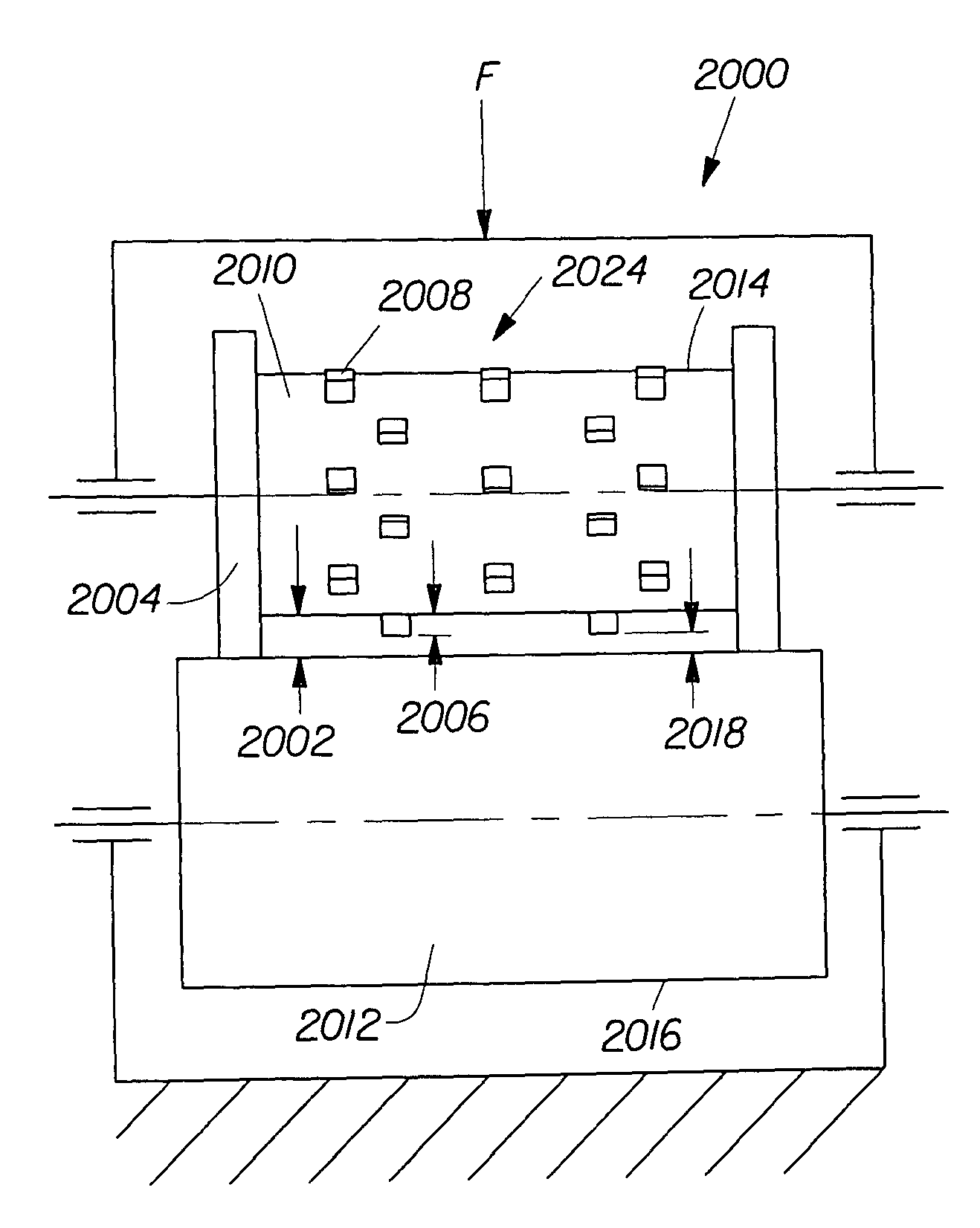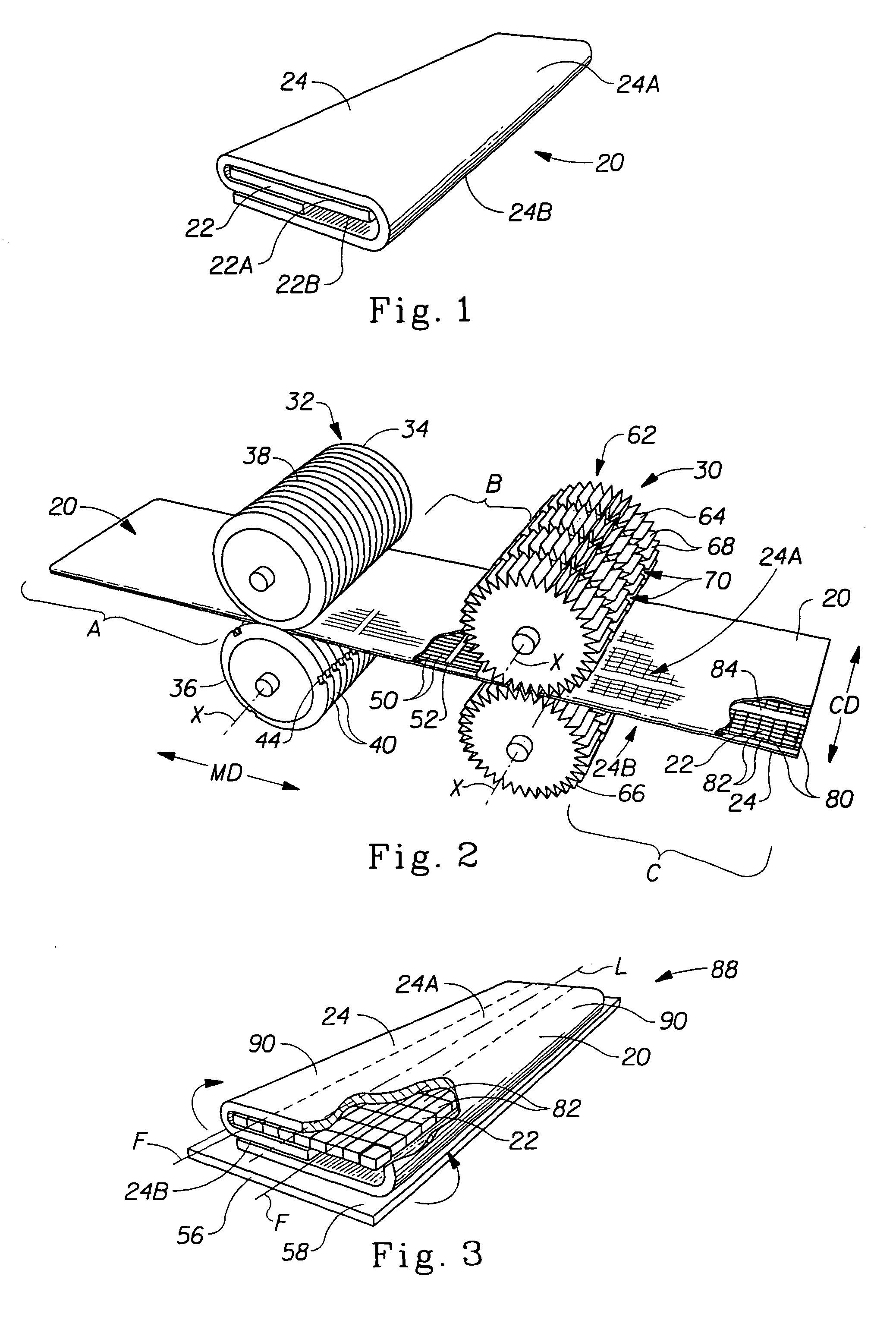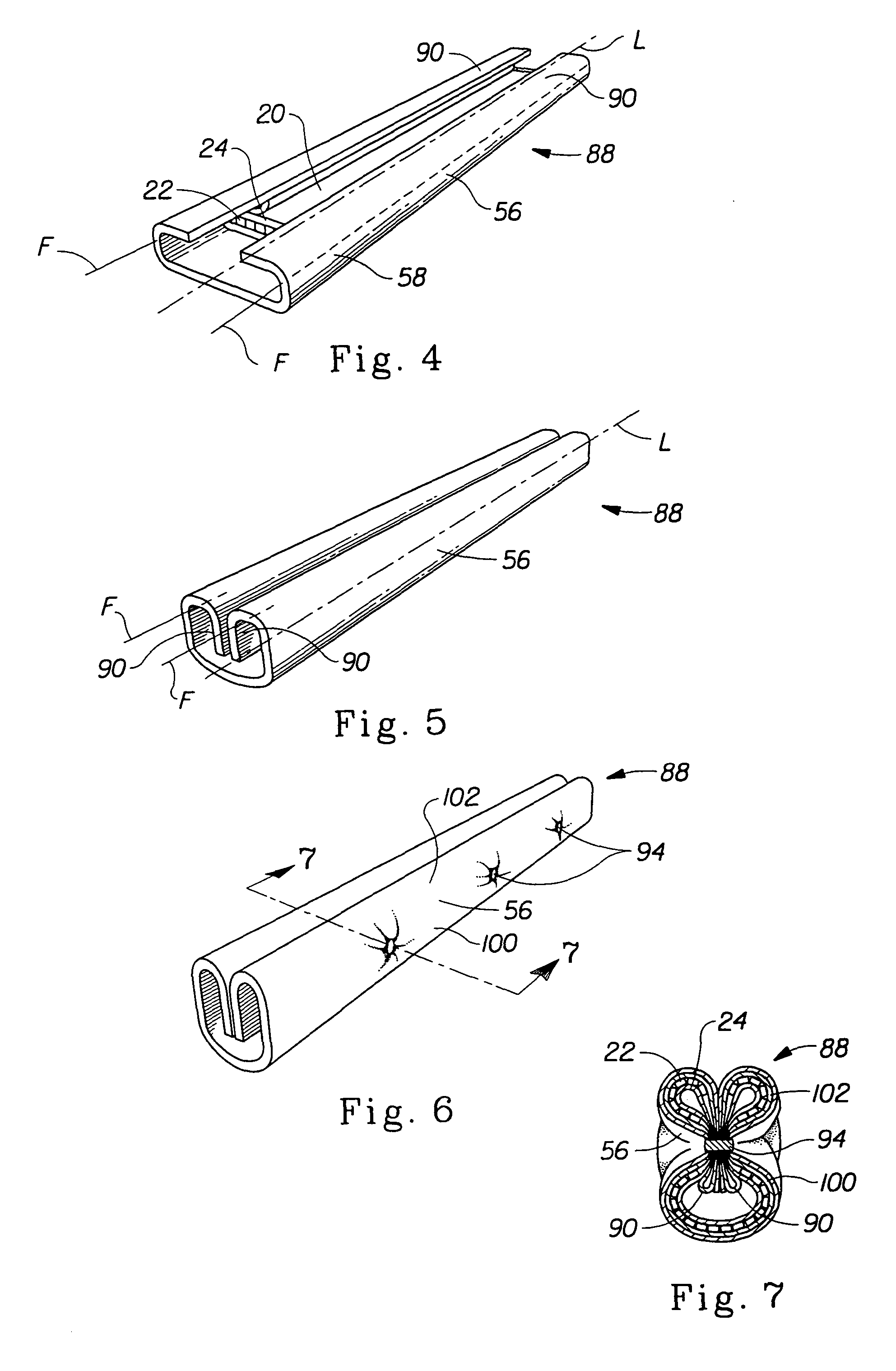Methods of bonding materials, especially materials used in absorbent articles
a technology of absorbent articles and materials, applied in the field of bonding materials for use in absorbent articles, can solve the problems of low structural integrity, low tensile strength of materials, and inability to bond to materials using adhesives,
- Summary
- Abstract
- Description
- Claims
- Application Information
AI Technical Summary
Benefits of technology
Problems solved by technology
Method used
Image
Examples
Embodiment Construction
[0039]The present invention relates to the methods of bonding materials for use in absorbent articles, although the techniques described herein may be used to bond materials used in other types of articles. In preferred embodiments, the present invention relates to such methods which are used in the manufacture of absorbent articles such as sanitary napkins, pantiliners, tampons, absorbent interlabial devices, diapers, incontinence devices, wipes, and the like.
[0040]There are numerous aspects of the present invention. In one aspect, the present invention relates to a method of bonding through incompatible materials during the process of making a composite structure comprising several materials. As used herein, the term “incompatible materials” refers to materials to which it is difficult to bond other materials to using conventional bonding techniques. In another aspect, the present invention relates to improvements that allow the method to be used to bond through relatively thick m...
PUM
| Property | Measurement | Unit |
|---|---|---|
| thickness | aaaaa | aaaaa |
| thickness | aaaaa | aaaaa |
| thickness | aaaaa | aaaaa |
Abstract
Description
Claims
Application Information
 Login to View More
Login to View More - R&D
- Intellectual Property
- Life Sciences
- Materials
- Tech Scout
- Unparalleled Data Quality
- Higher Quality Content
- 60% Fewer Hallucinations
Browse by: Latest US Patents, China's latest patents, Technical Efficacy Thesaurus, Application Domain, Technology Topic, Popular Technical Reports.
© 2025 PatSnap. All rights reserved.Legal|Privacy policy|Modern Slavery Act Transparency Statement|Sitemap|About US| Contact US: help@patsnap.com



